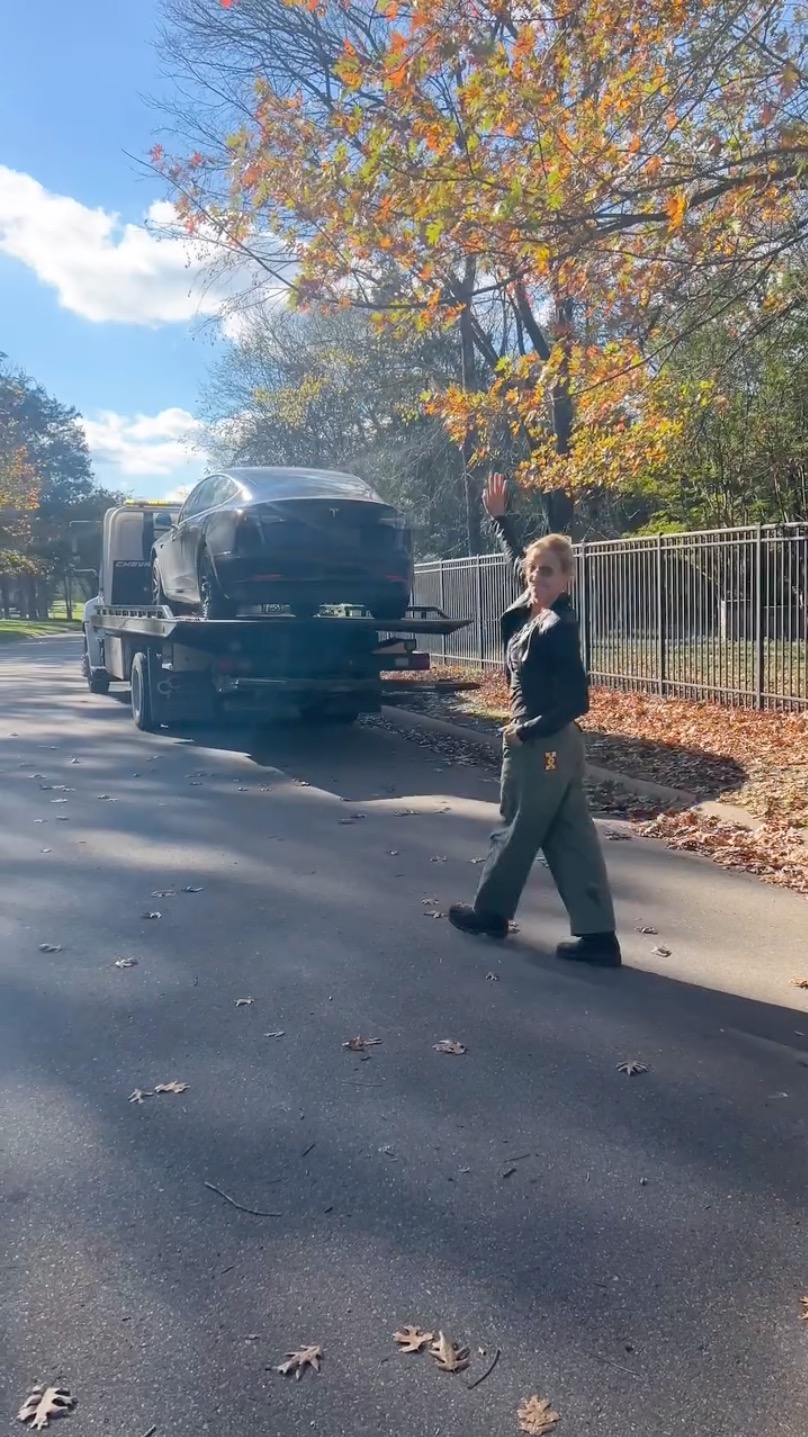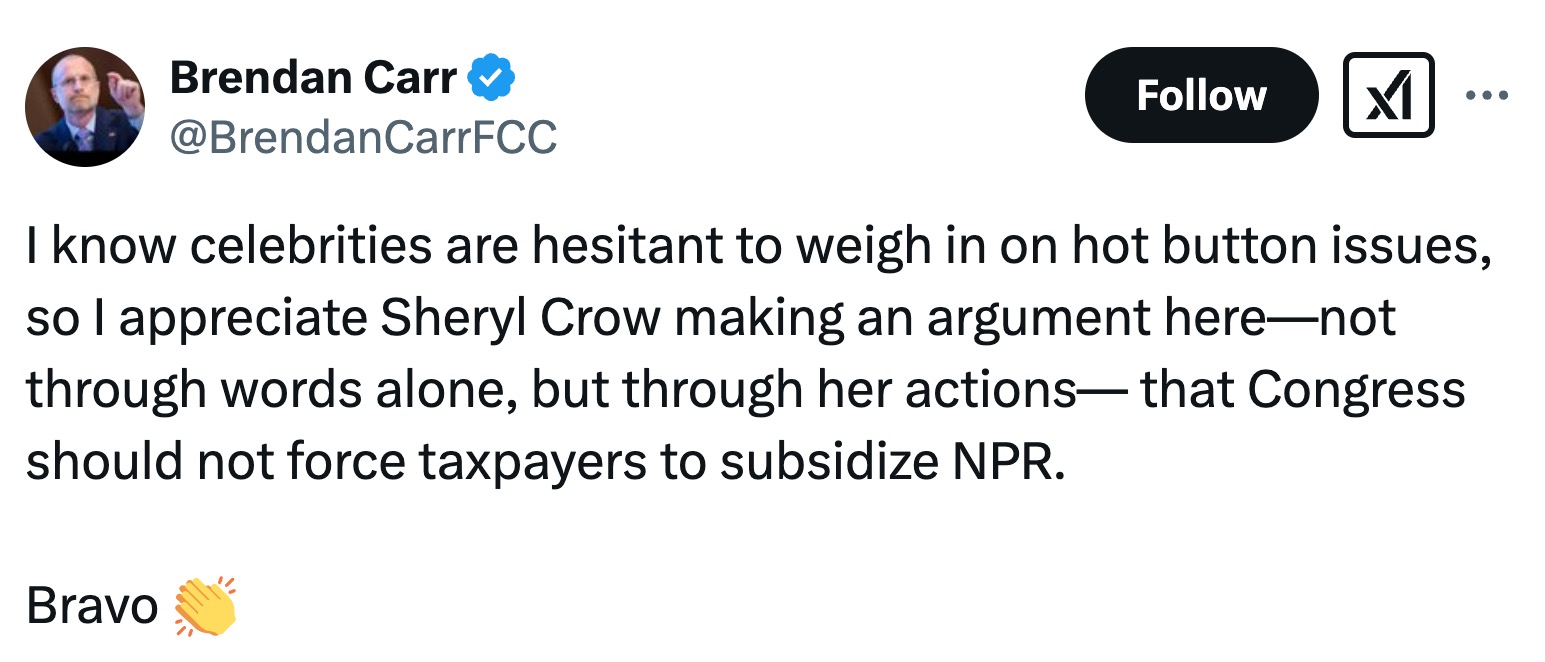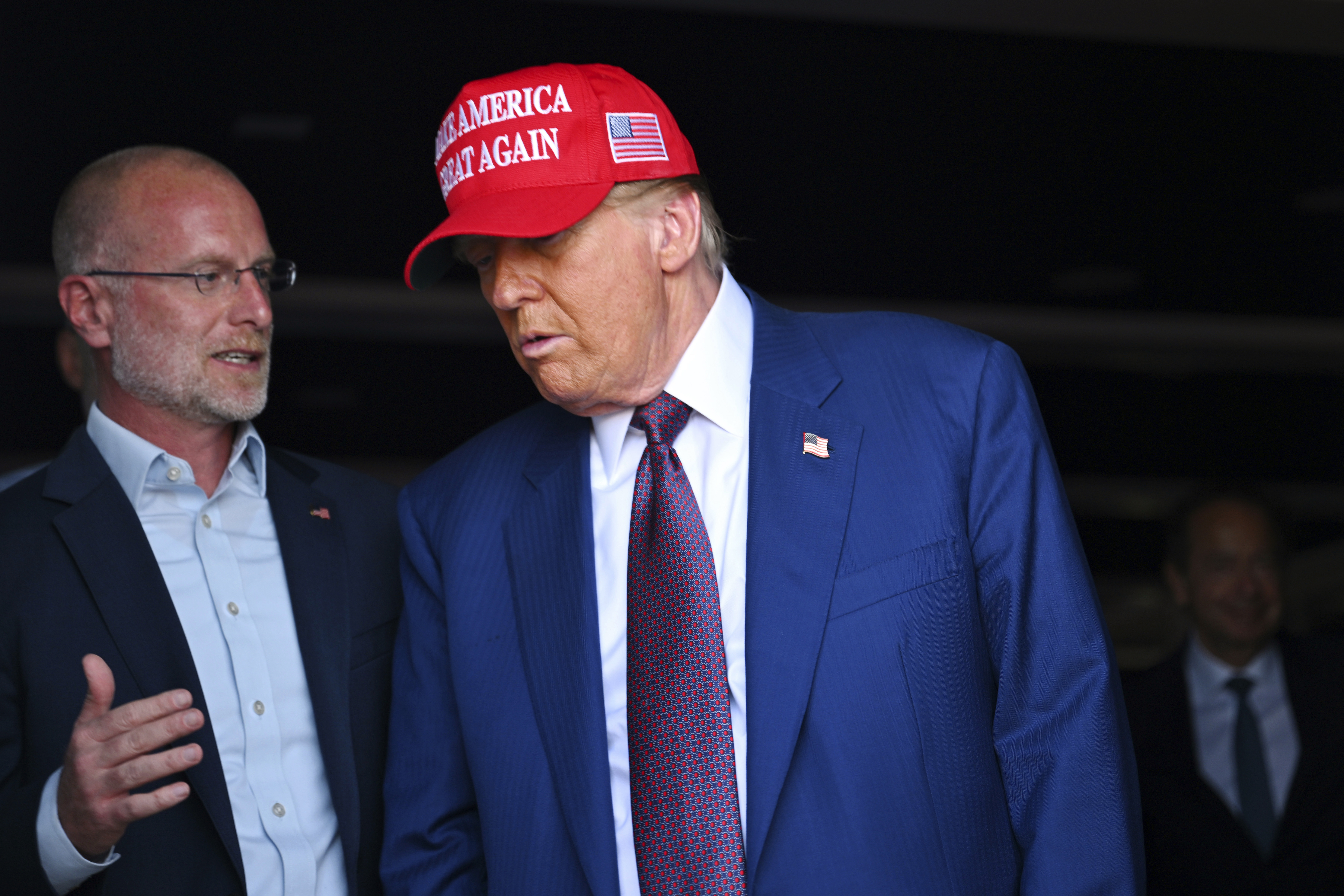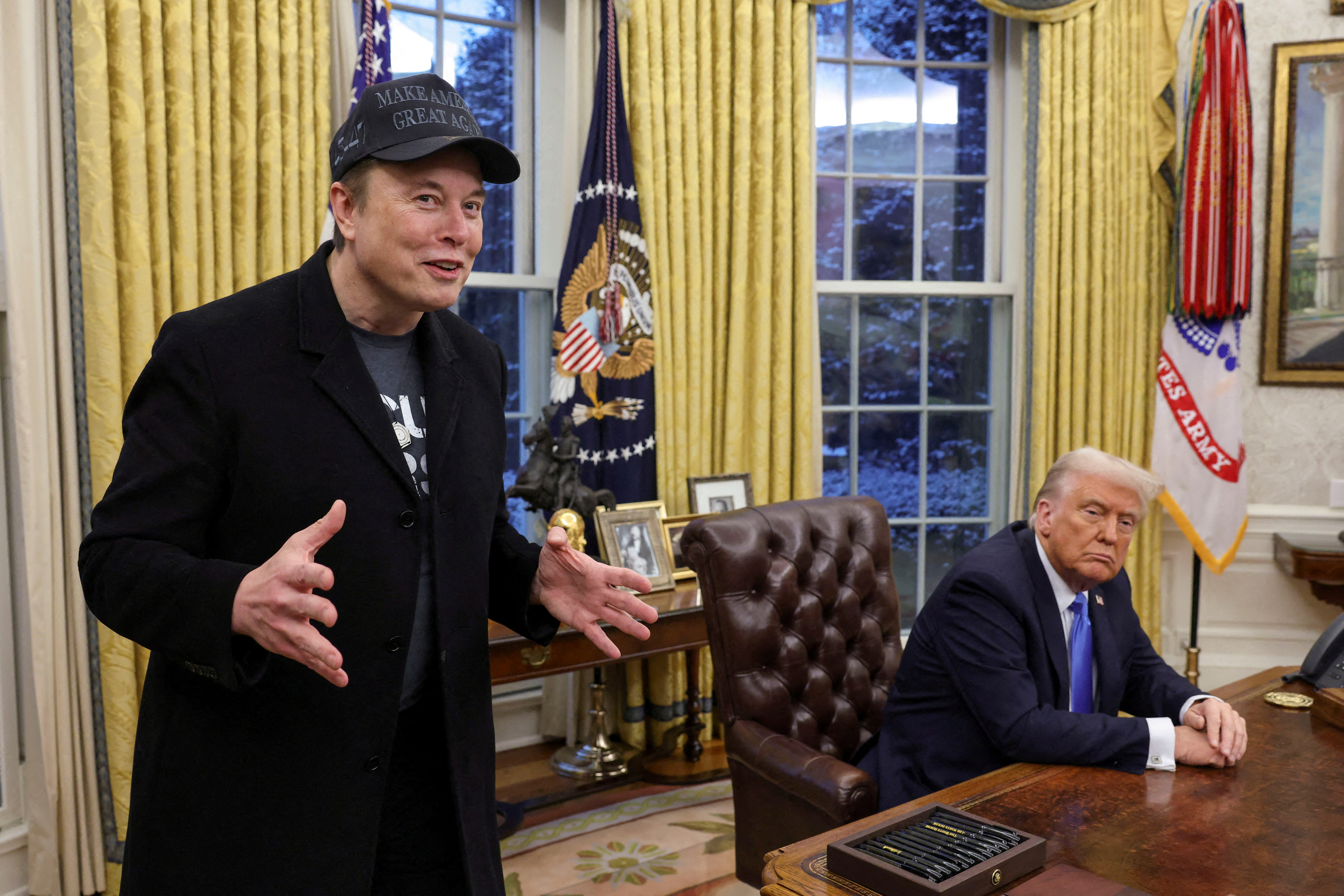FCC Chairman Brendan Carr sarcastically cheered singer Sheryl Crow after she sold her Tesla to protest Elon Musk — and allegedly donated money from the sale to National Public Radio.
Carr, who was named by President Trump to lead the powerful federal panel last month, signaled that the left-leaning radio giant will need celebrity donations to survive without government funding.
“I know celebrities are hesitant to weigh in on hot button issues, so I appreciate Sheryl Crow making an argument here – not through words alone, but through her actions – that Congress should not force taxpayers to subsidize NPR,” Carr said Saturday in a post on X.
“Bravo,” he added, with an emoji showing hands clapping.
Trump’s pick, who took the helm at the Federal Communications Commission in January, sniped at Crow after she posted a video on Instagram showing her waving goodbye to her Tesla as the electric vehicle rode away on a truck.
“My parents always said … you are who you hang out with,” Crow wrote in the post on Saturday. “There comes a time when you have to decide who you are willing to align with. So long Tesla.”
In the caption, the singer-songwriter said she had donated the money from the Tesla sale to NPR, “which is under threat by President Musk, in hopes that the truth will continue to find its way to those willing to know the truth.”
She urged her followers to “#ProtectTheConstitution” and call 202-224-3141 — which appears to be the phone number for dining options in the Senate building, according to the Senate’s website. The phone number is one digit off from the US Capitol switchboard.
Carr argued that Crow’s donation “seems like an argument against Congress requiring taxpayers to subsidize NPR.”
“Wouldn’t take too many celebrities following Sheryl Crow’s lead and selling their cars to keep NPR going without taxpayer dollars. #Kars4NPR #CelebrityKars4NPR,” he wrote in another post on X.
The chairman seemed to jokingly reference the New Jersey-based vehicle donation nonprofit, known for its stuck-in-your-head radio jingle, as well as accusations of misleading donors.
Last month, Carr ordered a probe into nonprofit media organizations NPR and PBS to investigate whether they violated government rules by airing paid commercials.
He argued the results of the investigation could sway lawmakers on whether the government should continue funding the public news groups.
“To the extent that these taxpayer dollars are being used to support a for-profit endeavor or an entity that is airing commercial advertisements, then that would further undermine any case for continuing to fund NPR and PBS with taxpayer dollars,” Carr wrote in a January letter to NPR and PBS.



